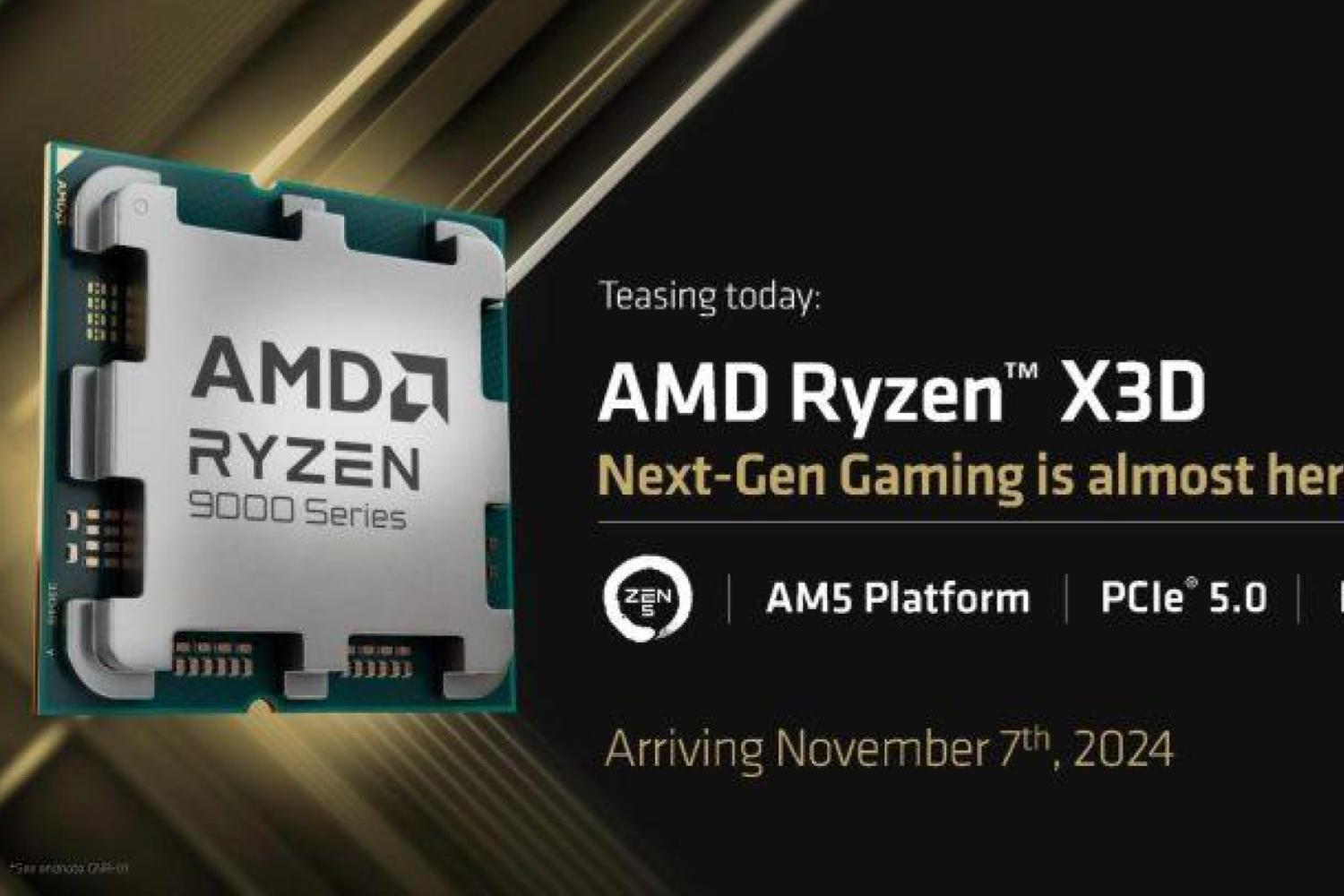After the release of the new Ryzen 9000 series at the end of summer, AMD has just officially announced the arrival of one of the most anticipated products in this new lineup: new X3D processors, to the delight of very demanding video game enthusiasts.
For those who are not familiar with these models, the X3D family consists of processors with a massive amount of L3 cache stacked vertically (hence AMD’s official nomenclature, which speaks of 3D V-Cache). The main mission of this cache is to serve as an intermediary between the CPU and the RAM. In practice, with a large amount of L3 cache, we obtain lower latency and an overall increase in performance, especially in applications that require several cores.
To make room for this additional cache, AMD has decided to very slightly reduce the frequency of these X3D-branded chips. They are therefore a little less effective in classic productivity tasks, such as editing and transcoding. On the other hand, they display quite astonishing performance in game. The Ryzen 7 5800 X3D, for example, dominated its generation head and shoulders. Today, the Ryzen 7 7800 X3D and Ryzen 9 7950 X3D remain the most powerful gaming processors on the market, with a comfortable lead. These are therefore extremely popular models among the most demanding players. And inevitably, the latter are impatiently awaiting the release of their 9000 series equivalents.
The high point of a disappointing generation?
In its announcement, AMD did not reveal any technical details about these next-generation models. For now, we’ll have to settle for a few rumors — but these are pretty interesting. Recently, an article from HardwareLuxx relayed by TechPowerUp presented some benchmarks which apparently emerged from a leak from the manufacturer MSI.
And the figures put forward were rather encouraging. If this data is accurate, the 8-core model (probably the Ryzen 7 9800 X3RD) will offer +11% performance compared to its predecessor. The 16-core model (probably a Ryzen 9 9950 X3D), for its part, would do even better with +13% compared to the Ryzen 9 7950 X3D.
But the most interesting thing is that the X3D 9000 series is said to perform much, much better than its predecessors in terms of pure productivity — the Achilles heel of this line so far. If the data presented in these graphs are correct, they would even be equivalent to non-X3D Ryzen 9000 in this areawhich would be a significant added value.
If so, this would be good news for AMD aficionados, who have not had much to sink their teeth into with the 9000 series. Indeed, these new chips under Zen 5 architecture do not have frankly won over the public for the moment. Many users have decided to skip this generation, in particular because of a lower power gain than usual compared to the previous series. It will be interesting to see if these new processors will change their minds; See you in a few days, as the deadline of November 7 approaches, for the first elements of response.
🟣 To not miss any news on the WorldOfSoftware, , .





/cdn.vox-cdn.com/uploads/chorus_asset/file/25590829/Screenshot_2024_08_27_at_9.05.57_AM.png)





